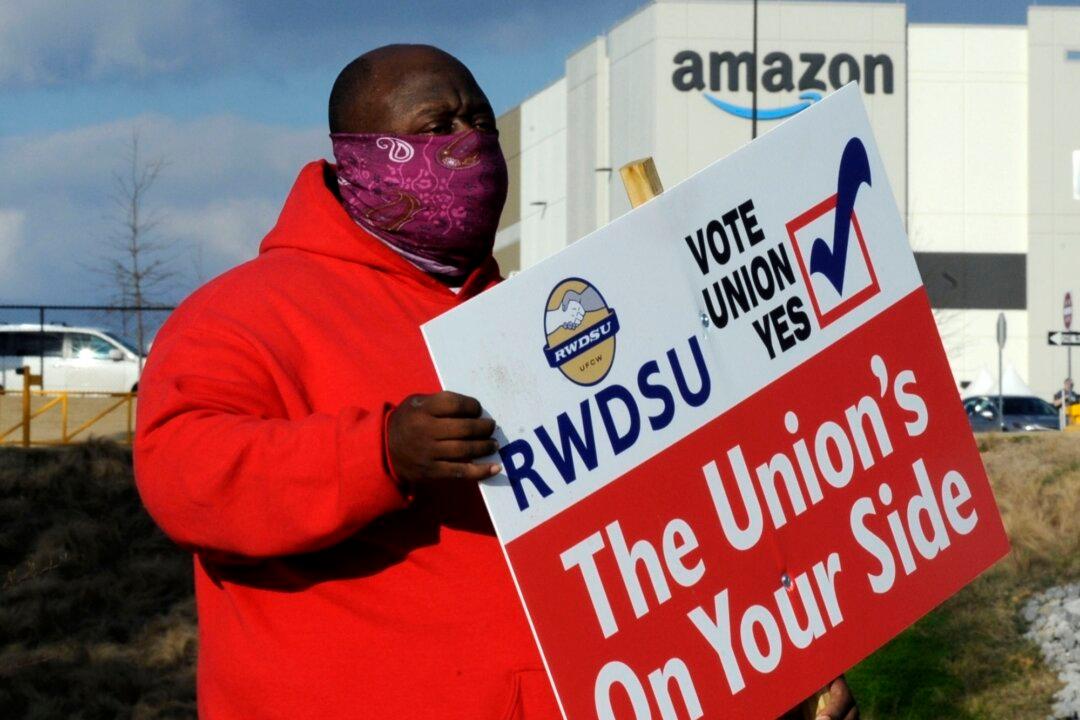The attempted unionization of Amazon warehouse workers in Alabama is tough work that won’t immediately spark other organizing efforts if the vote is successful, an expert on the company said.
“It’s very difficult to unionize in high-turnover workplaces. You have to get union cards signed to get an election, many of those people may have left by the time the election comes around,” author Robin Gaster told NTD’s “The Nation Speaks” show over the weekend.





